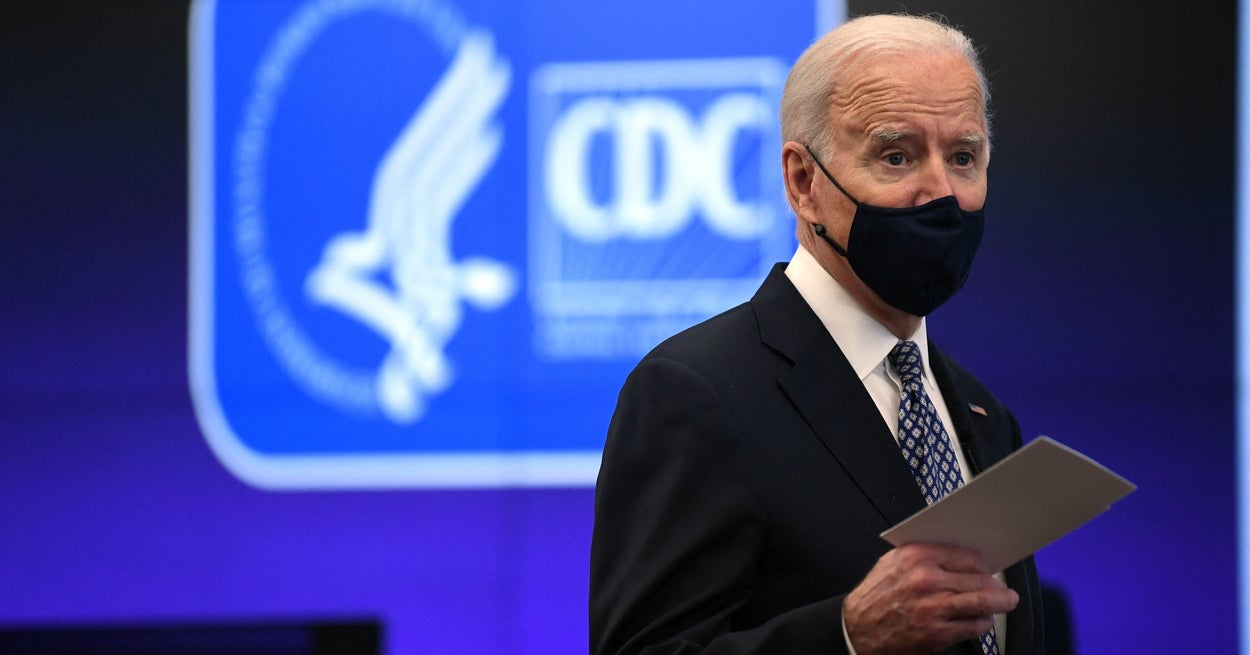WASHINGTON — A bill with broad support in the Senate that would make the director of the Centers for Disease Control and Prevention a Senate-confirmed position is alarming public health experts already exhausted by the politicization of their field.
Sponsored by Sen. Patty Murray of Washington and Richard Burr of North Carolina, the Prevent Pandemics bill — wide-ranging legislation meant to better prepare the country for the next pandemic by modernizing data collection, strengthening medical supply chains, and more — passed out of the Senate Health Committee this week in a bipartisan 20–2 vote. Sen. Tommy Tuberville of Alabama first suggested the CDC director change and moved the proposal into the broader legislation from a stand-alone bill he sponsored.
Although the bill easily passed out of the Senate committee, it still needs passage in the House, which has yet to introduce a companion bill.
Public health officials are concerned the CDC change would politicize the process of naming a new director, forcing holdups in Congress over mask mandates, gun control, and lab leak disputes. Health officials also fear that directors, who are now appointed by presidents for their health expertise, would be replaced instead by pharmaceutical industry donors or political allies.
“If we learned anything during COVID, [it’s that] we want a rigorous scientist with public health experience who stays out of the political arena in that position,” said Lawrence Gostin, director of the O’Neill Institute for National and Global Health Law at Georgetown University.
President Joe Biden placed current CDC Director Rochelle Walensky in office as soon as he came took the White House because her position did not require a Senate hearing. The CDC position was an outlier compared to those running other pandemic agencies. Other key public health positions, including directors of the Food and Drug Administration, the National Institutes of Health, and the Office of the Assistant Secretary for Preparedness and Response, require Senate confirmation. Under the bill, the current CDC director would be able to stay on without being subject to a Senate confirmation.
“The CDC Director regularly makes decisions that impact the health of Americans, so taxpayers in this country deserve a say in who leads this agency,” Tuberville said in a statement. “Just as we do with other high-level nominees, including nominees who serve in healthcare-related roles, the Senate should thoroughly vet and consider the qualifications of any nominee for CDC director.”
During the outset of the pandemic in the Trump administration, political appointees interfered with CDC guidelines on safe gatherings and scientific findings. Then–CDC director Robert Redfield faced criticism for not halting such interference and not pushing back against White House advisers who supported letting the virus freely infect the US population to keep businesses open.
A Democratic Senate Health Committee aide told BuzzFeed News the entire Prevent Pandemics Act would strengthen public health and preparedness policies. “As part of these efforts, it also bolsters leadership and accountability at the Centers for Disease Control and Prevention by making the director Senate confirmed — the same as other key public health and preparedness positions.”
In January, then–White House COVID czar Jeff Zients told reporters that the White House would “leave it to Congress” to decide if the CDC position should have Senate confirmation. Walensky, at the same briefing, declined to add to his response.
Two former CDC directors, Tom Frieden and Jeffrey Koplan, however, told BuzzFeed News that Senate confirmation of their past position was a bad idea.
“Requiring Senate confirmation for the CDC Director is a quick, simple and this wrong solution for the complicated problem of improving the CDC,” Frieden said by email. “It is imperative that the President be able to appoint and fill the nation’s chief public health leader on Day 1 of an administration.”
Outside critics of the move warned it would just accelerate the politicization of the position that took place during the pandemic.
“This is a really bad idea,” said Georges Benjamin, executive director of the American Public Health Association. “It just creates an opportunity for people to grandstand for political purposes.”
In general, the person who heads the CDC should have public health or medical experience, Benjamin added. “We should tap the enormous expertise we have out there, scientists and technical experts with the administrative skills to do these jobs, before we go to people who have to have on-the-job learning.”
For decades, the CDC has pursued its public health mission in Atlanta, apart from the political world of agencies with regulatory roles, Gostin said. Requiring Senate confirmation of the CDC chief would shift the agency away from public health and toward political action, he suggested.
“This is just going to make it into a hyperpartisan appointment,” Gostin said. He pointed to the brawls over Supreme Court nominations and the recent messy installment of FDA Director Robert Califf, where delays or refusals to confirm a nominee could hinder the CDC in an emergency. Confirmation hearings, he added, could devolve into “ideological purity tests.”
“They could be asking, ‘Do you support masks?’, ‘Do you support vaccine mandates?’, or ‘Do you support firearms control?’” Gostin said. “So there will be pressure on your appointee to say things that were politically correct but without any scientific or public health justification.”

